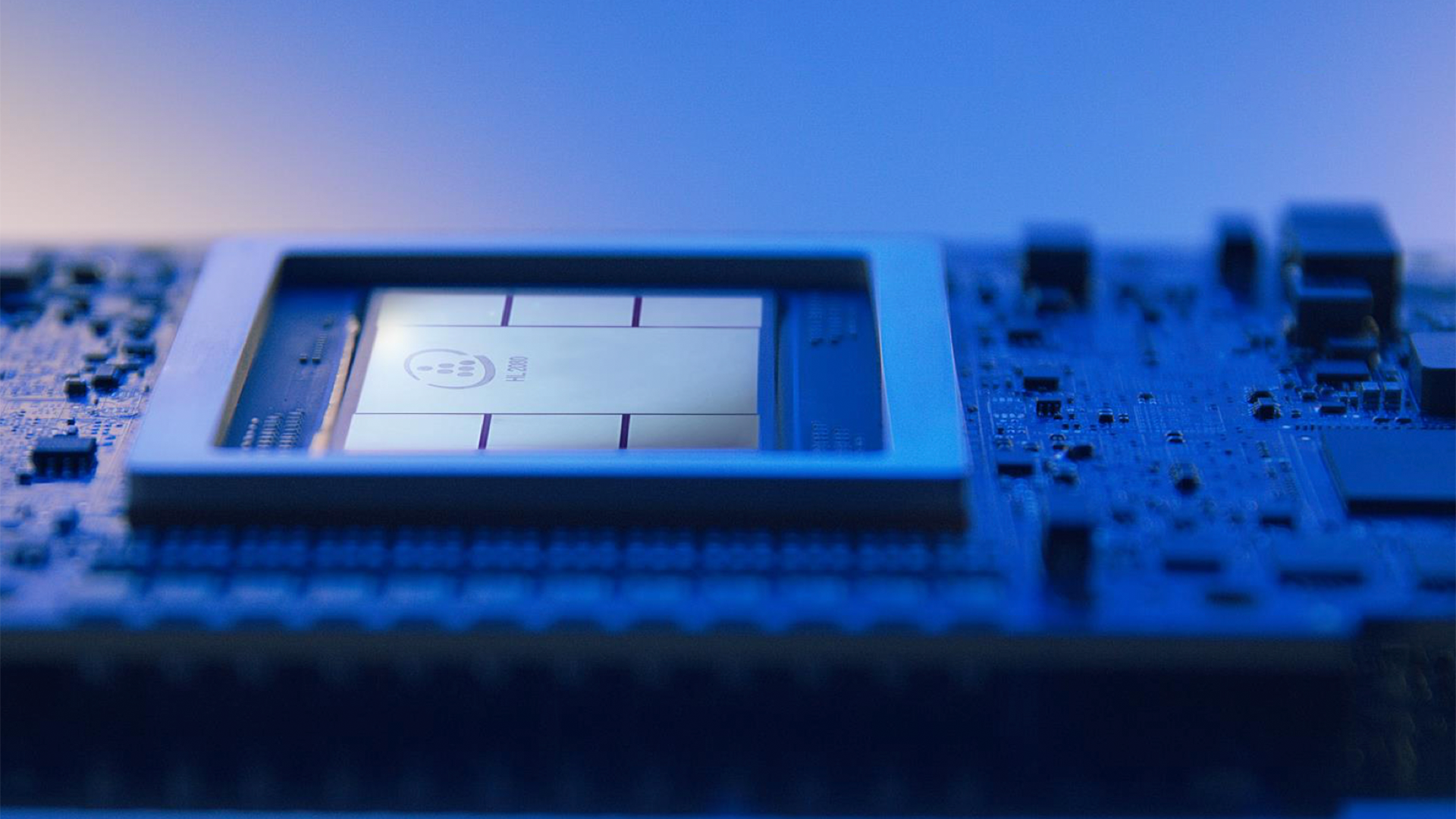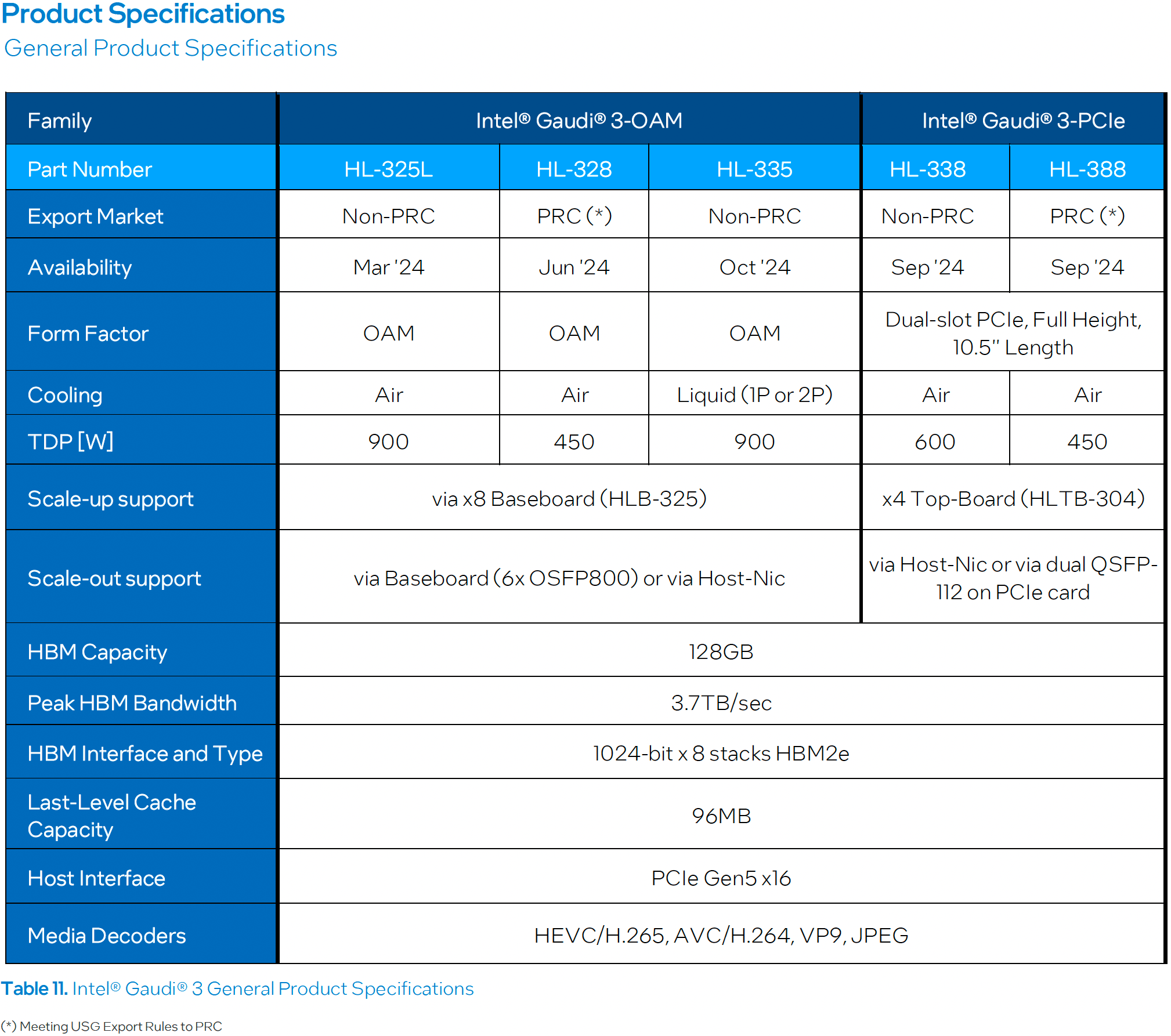
Intel announced China-specific versions of its Gaudi 3 AI accelerators along with the regular versions this week. By contrast, nothing is clear about AMD's Instinct MI300-series products for China or Nvidia Blackwell-based offerings for the People's Republic. Will they ever be released? Analysts from TrendForce have no idea.
Intel is prepping two Gaudi 3 products that are neutered to meet U.S. export control rules for China. One product is the Gaudi 3 HL-328 OAM module, and another is the Gaudi 3 HL-388 PCIe card. Intel doesn't disclose the performance levels of the two AI processors, but both are said to feature a thermal design power of 450W (down from 900W and 600W of fully-fledged versions), which points to radically lowered performance. Gaudi 3-series China-oriented processors have 128 GB of HBM2E memory (using eight stacks with a 1024-bit interface) and 3.7 TB/s of bandwidth. The scale-out capabilities of PRC-specific Gaudi 3 are similar to other Gaudi 3 accelerators.

Neither AMD nor Nvidia has officially introduced their China-specific offerings based on their latest architectures, such as the CDNA 3 and Blackwell. In fact, we have heard rumors about AMD's Instinct MI309 product designed for export to China, which has failed to meet the U.S. government's export control rules. This indicates that the company wants to sell its CDNA-based products in the People's Republic. We have no idea about Nvidia's Blackwell-related plans for China.
From a business standpoint, heavily reducing the performance of flagship AI and HPC products to sell them to China is a questionable tactic. On the one hand, companies like AMD, Intel, and Nvidia can sell cut-down processors with minor defects that otherwise would have to be scrapped. On the other hand, TSMC can yield even large chips pretty well, so some cut-down processors are made from fully functional chips.
One would ask why companies like AMD and Nvidia tend to cut down their latest offerings rather than keep selling previous-generation offerings in China. While this tactic may work, it should be noted that the latest processors also support data formats that are more efficient for AI training and offer better performance-per-watt, so their customers are more inclined to install them rather than previous-generation products. To that end, it makes sense to expect Blackwell and CDNA 3-based products for China.







